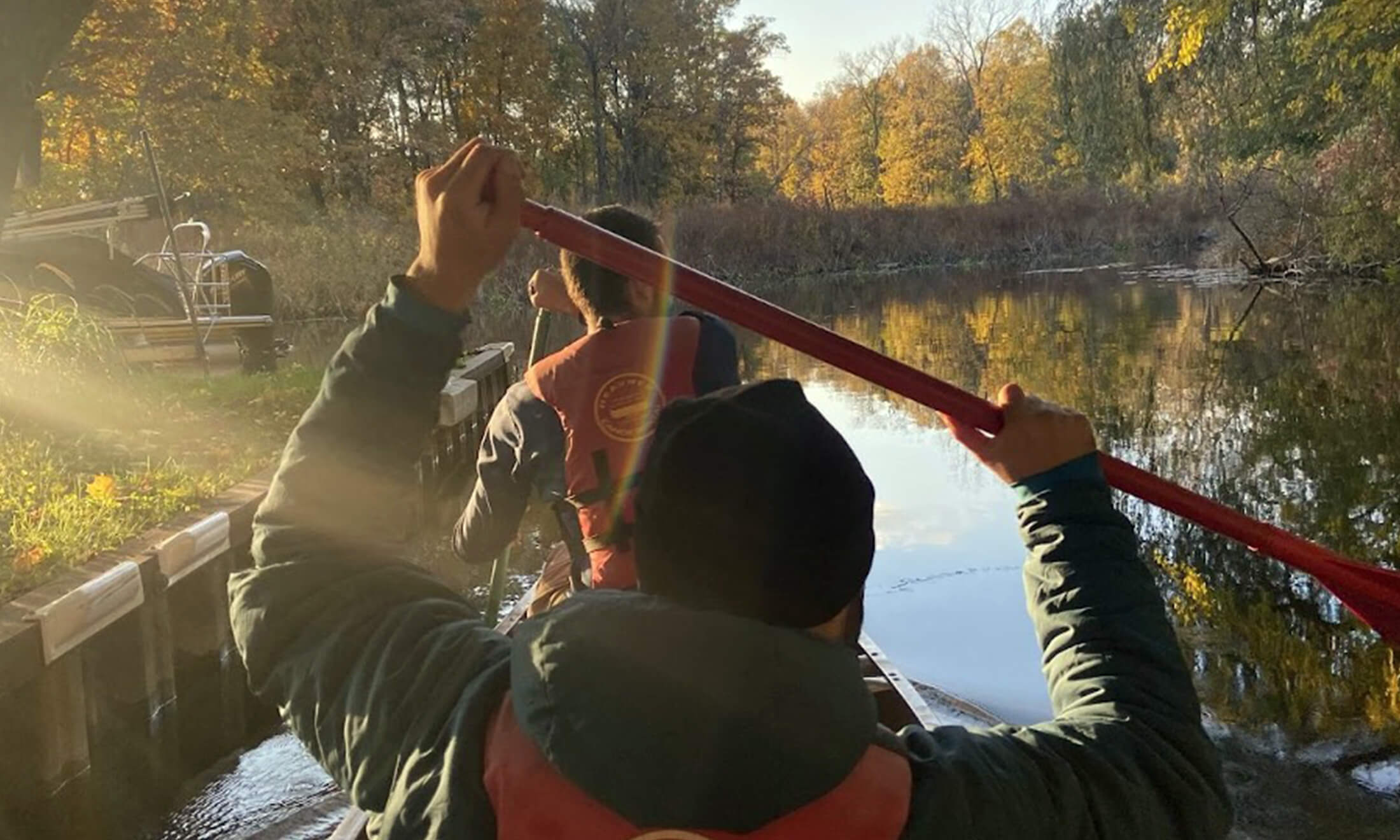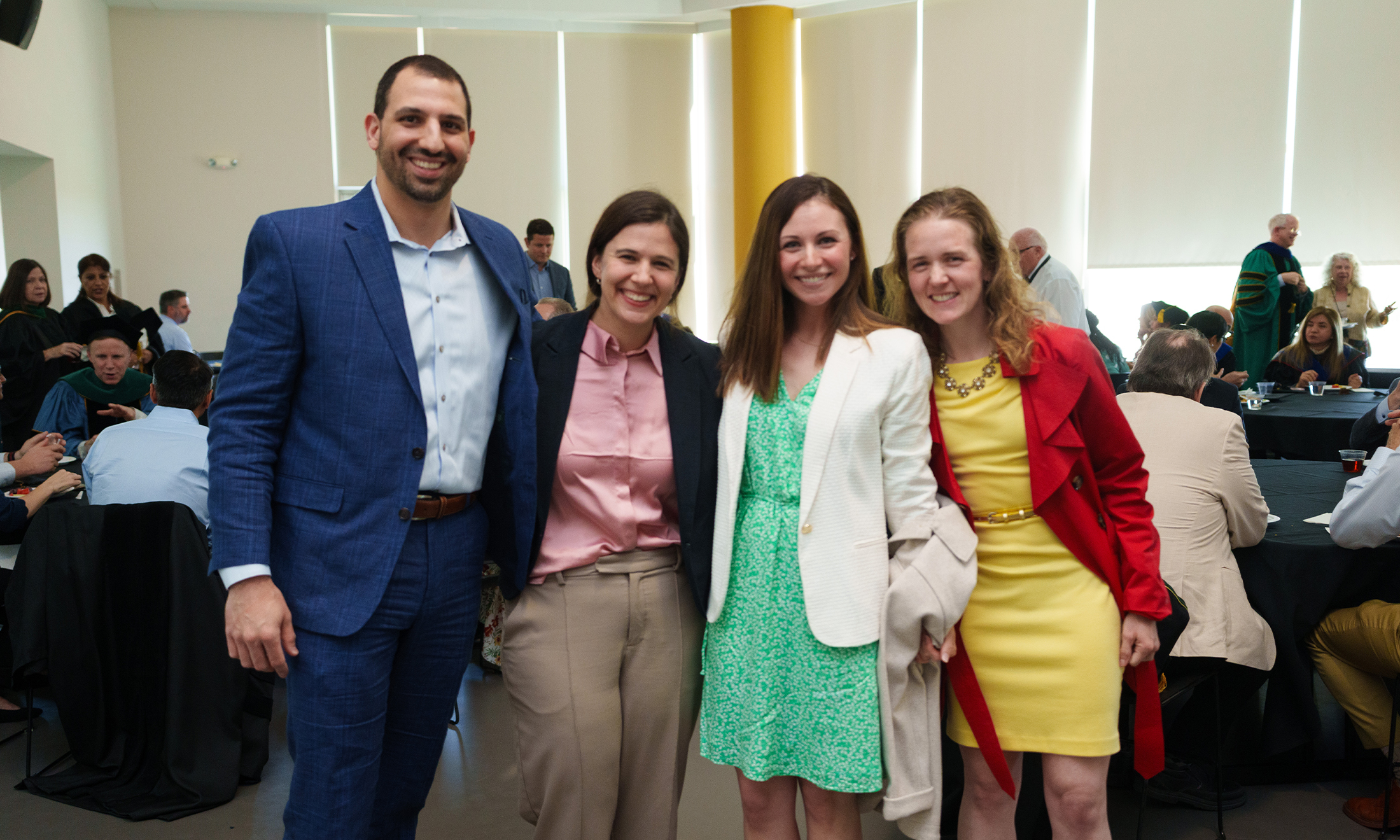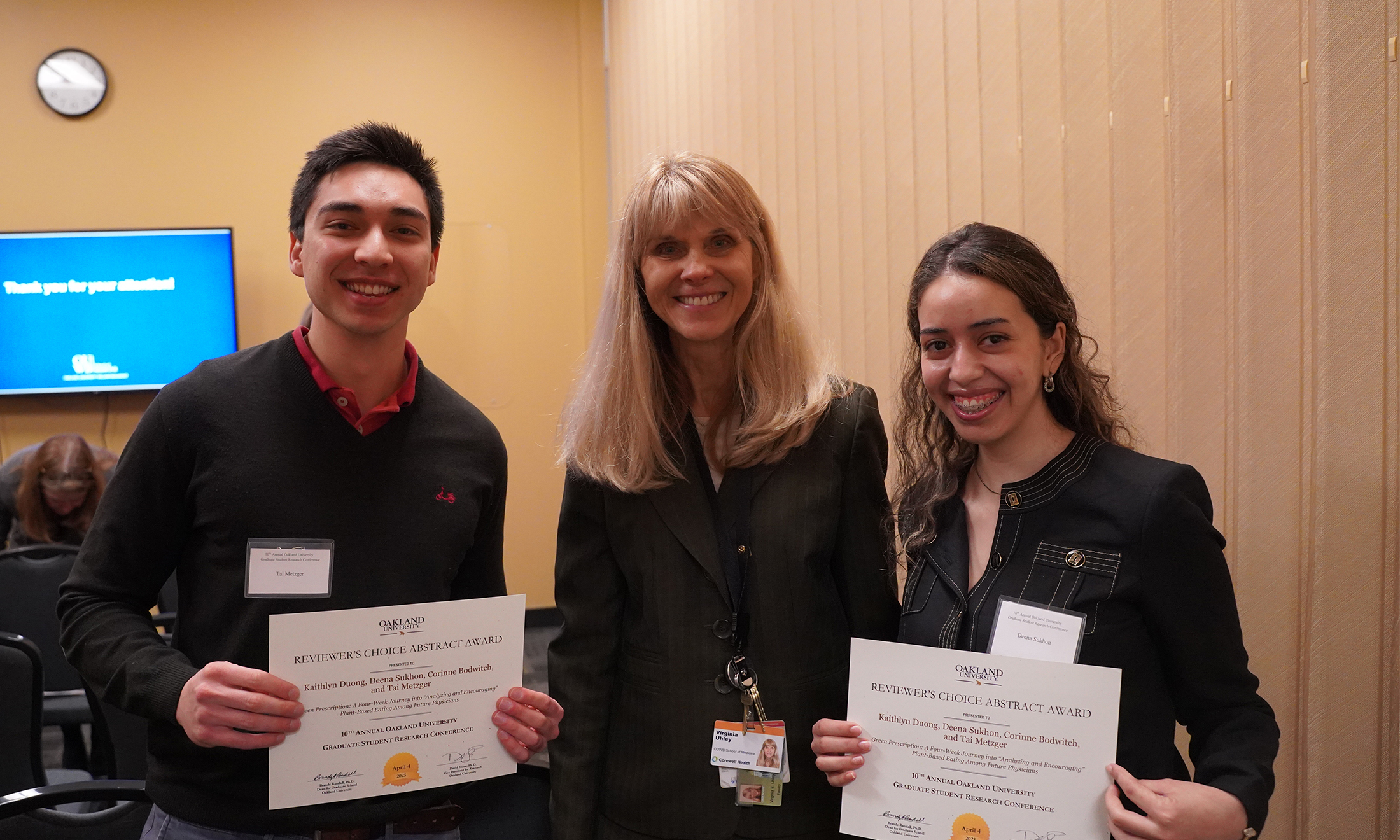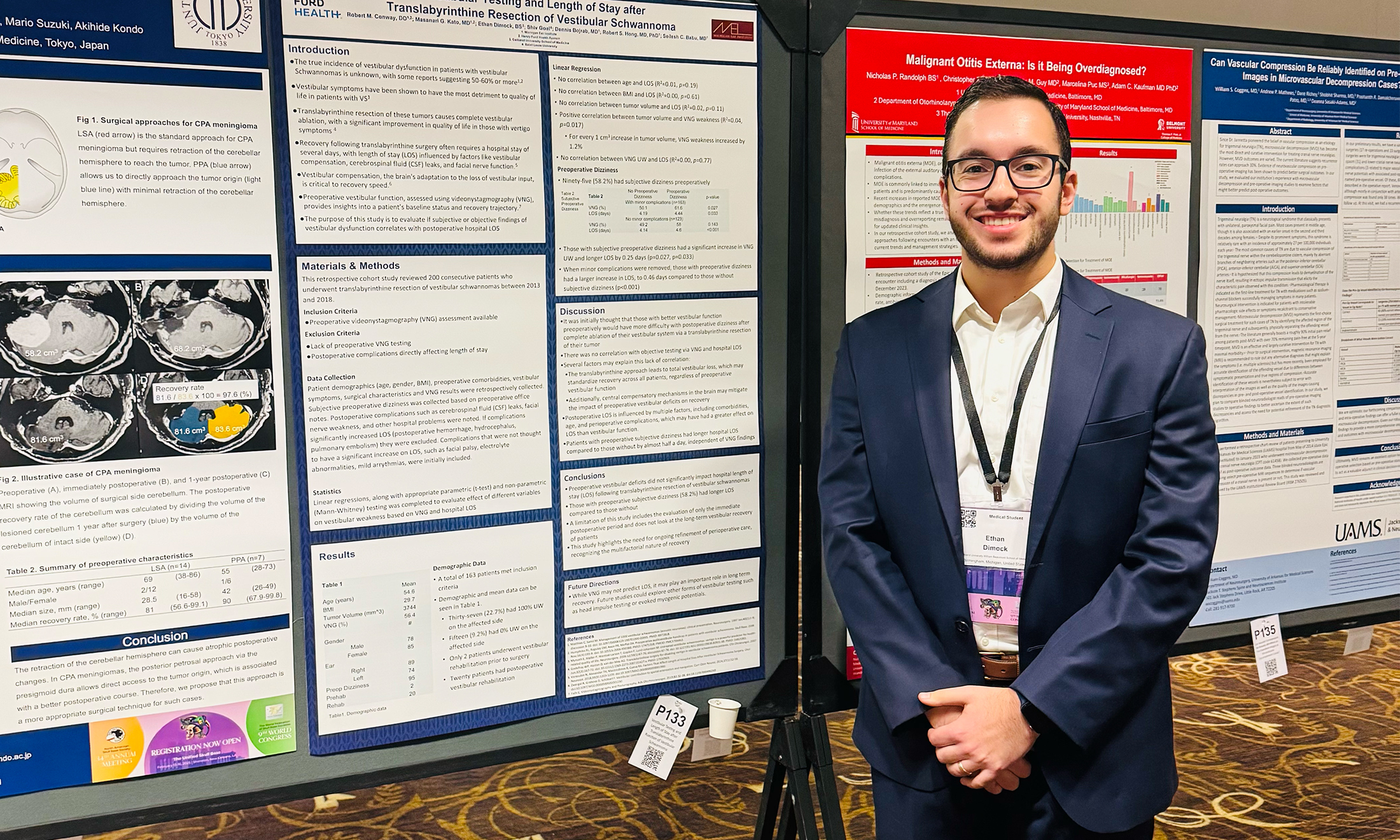Student org goes to ‘war’
OUWB Wilderness Medical Society participates in MedWAR
For the second year, members of one OUWB student organization have gone to “war” armed with skills learned during their medical education, and that could one day be life-saving.
The student organization is the OUWB Wilderness Medical Society (OWMS), which was started in 2019. Previously, OUWB had a similar group founded in 2014 called WildMed.
The “war” is the Medical Wilderness Adventure Races (MedWAR), a unique event that combines wilderness medical challenges with the growing sport of adventure racing. It was started in 2000 by physicians and medical students at Medical College of Georgia.
The Midwest MedWAR was held Oct. 15 at Pinckney Recreation Area. For eight hours, teams were given simulations of medical encounters that they may experience in a wilderness setting to test the participants’ skills in medicine.
M2 Zane Alroshood, president, OWMS, described it as a “triathlon.”
“You progress in a race, and at each checkpoint, there’s a medical challenge,” said Alroshood. “It involves using your knowledge, your skills, and your wilderness techniques. What we’ve learned in our classes, even in our first year, helped us solve many of the challenges that came up. It helps connect what we learned in class to a real-life wilderness setting.”
Last year marked OWMS’s second year participating in the event. (WildMed participated in the 2014 MedWAR held in Cumberland Gap, Tennessee.)
The goal, said Alroshood, is that OUWB continues to attend and have more students participate.
“We hope that it’s a tradition that carries on in OUWB history for the rest of the organization,” he said. “We try to get everybody in our class involved…I think as the years go on, more people are going to be interested in it.”
M2 Alina Avetisyan, vice president, OWMS, participated in MedWAR for the first time.
“I was a little nervous at first, but I feel like I learned so much just going through the whole process,” said Avetisyan. “Before going, you had to bring everything with you that you thought you would need. So that was interesting, to think about, ‘What will I need? What are some potential scenarios we might come across?’”
“I thought that was a good skill to learn. I feel like in the future…I feel more prepared for that,” she said. “I thought it was really interesting.”
Other OWMS members said they felt similarly.
“Just being lost in the woods with your team and coming up with a solution, feeling some sort of camaraderie with your teammates, and then finishing a challenge with the things you’ve learned in class…that felt really satisfying,” said Alroshood. “When you learn something and…the opportunity arises and you implement it, that feels really good.”
“We’re lucky that we live in Michigan to have so much outdoor recreation,” said Alroshood. “It gives you the opportunity to build connections with your classmates and people outdoors, and an early chance to use the skills and techniques you learned in class and implement them in a safe, low-pressure setting.”
David Howell, M2, said MedWAR and OWMS provide ways for him to develop skills for a potential future in overseas medicine.
“You don’t have the resources that you would expect out in the middle of nowhere, so you either have to pack it, or improvise,” he said.
From textbook to terrain
One of the greatest benefits of MedWAR, OWMS members said, is its ability to strengthen skills necessary for various fields.
“It’s a cool way to bring people together who have similar interests and work together,” said Avetisyan. “I think for people who are interested in certain fields like emergency medicine, that can be helpful.”
However, Avetisyan said, the skills learned through MedWAR and outdoor recreation aren’t only applicable to emergency medicine — they’re relevant to all specialties.
“The skills we learn here can be applied to any field that we go into, and it’s good to always be prepared for emergency situations and have the skills to be able to tackle those, whether you’re outdoors or seeing patients who are presenting those types of injuries at the clinic or hospital,” she said.
Alroshood echoed that thought and added that it relies on a person’s ability to think on the spot.
“A big part for me is improvising and being able to use these skills in an everyday scenario. Whatever specialty you go into, there’s always going to be emergencies,” he said. “Being able to practice these skills early on is going to set you up for success.”
The spontaneity of the event, Howell said, allows him to understand how to adapt.
“You learn that no matter how much you plan, things aren’t going to go the way you want them to,” Howell said. “It’s been super helpful, just applying to life in general.”
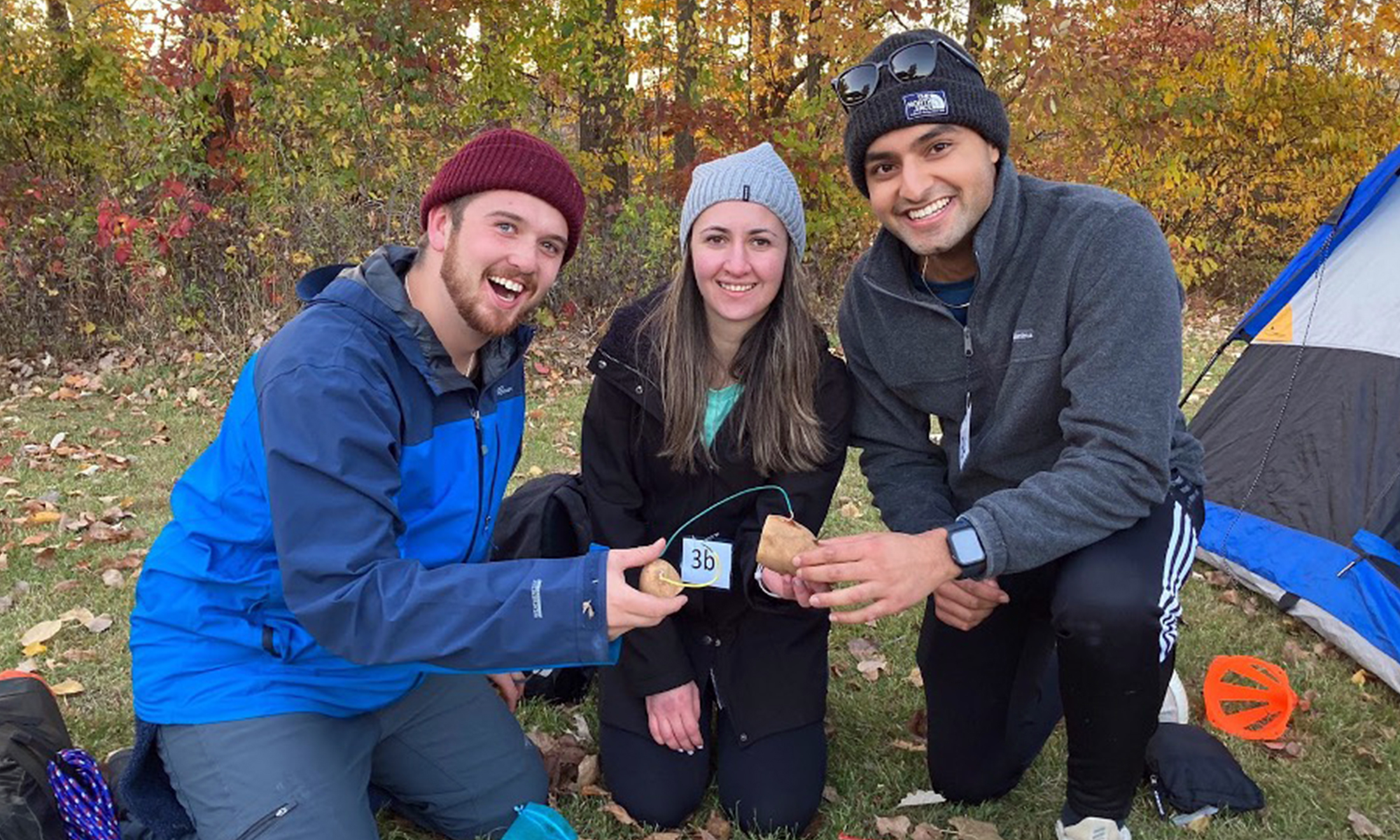
 April 27, 2023
April 27, 2023
 By Chloe Kukuk
By Chloe Kukuk